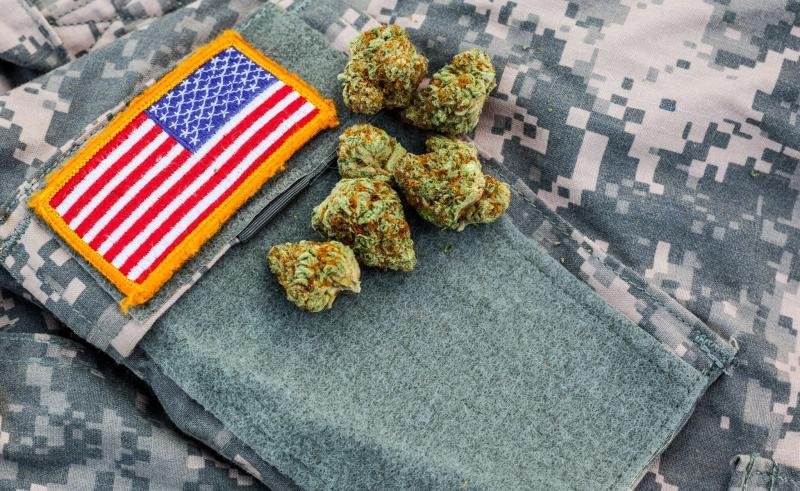A recent report by Mission Roll Call found that 57% of U.S. veterans favor allowing VA doctors to recommend medical marijuana. This reflects an increasing demand among veterans and their families for access to cannabis as a treatment option. The report, titled “Concern Among Veterans Puts Secretary Collins on a Mission to Explain the VA Overhaul,” highlights various issues affecting veterans, but medical cannabis stands out as a particularly pressing concern.
With 38 states now permitting medical marijuana, veterans face a conflicting situation: while state laws support their cannabis use, federal VA policy prohibits VA doctors from recommending or prescribing it. This creates a dilemma for veterans who seek the benefits of cannabis for chronic pain, post-traumatic stress, and other service-related conditions, yet are unable to obtain guidance from their healthcare providers.
Currently, VA healthcare providers are not authorized to discuss or prescribe medical marijuana, even in states where it is legal. This leaves many veterans to rely on external providers, often at high personal expense. The survey indicates a growing urgency for the U.S. Department of Veterans Affairs to update its policies regarding cannabis.
Mission Roll Call conducted the survey to assess veterans’ views on medical marijuana and other healthcare access issues. The findings reveal that many veterans believe the VA should adapt to the national conversation surrounding cannabis. Many veterans report that cannabis helps them manage symptoms of chronic pain and anxiety more effectively than traditional pharmaceuticals. However, without the backing of VA doctors, they often feel unsupported by the institution meant to assist them.
The report underscores the clash between federal and state laws. Although medical marijuana is legal in numerous states, the VA’s classification of cannabis as a Schedule I substance limits physicians from engaging in open discussions about its therapeutic uses. Veterans using cannabis may avoid disclosing their usage due to fears of losing VA benefits, thereby complicating their care.
As the VA undergoes significant restructuring under the leadership of Dr. Shereef Elnahal and Secretary Denis McDonough, many veterans are advocating for cannabis to be prioritized in the modernization efforts. Advocacy groups are pushing Congress and the VA to allow healthcare providers to discuss and recommend medical marijuana without the threat of penalties. Some lawmakers have introduced proposals aimed at protecting VA doctors who engage in these discussions in states where cannabis is permissible, but progress has been slow.
Veterans indicate that full integration of cannabis into VA healthcare could lead to reduced reliance on opioids, safer pain management options, personalized wellness strategies, and increased trust between veterans and their healthcare providers. Additionally, many family members of veterans support this initiative, citing firsthand experiences of how cannabis improves their loved ones’ quality of life and reduces dependence on narcotics.
Organizations like Mission Roll Call and the Veterans Cannabis Project are actively advocating for policy changes that would enhance access to medical marijuana for veterans. With over half of the veteran community expressing support for cannabis access through the VA, policymakers face mounting pressure to address this issue. The findings of this report signal a critical moment for VA cannabis reform. Veterans deserve the opportunity to explore all legal treatment options available to them, including medical marijuana, for issues such as chronic pain and anxiety.




